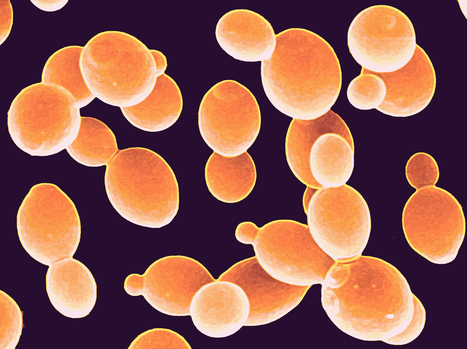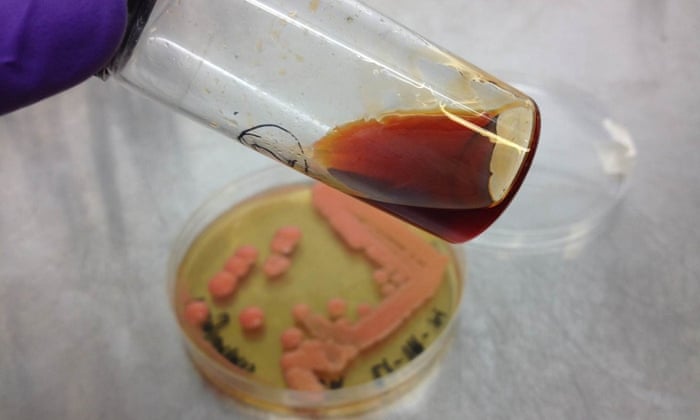
Introduction
Palm oil is widely used in food, cosmetics, personal care and bio-energy industries. Critics say the production of this plant –derived oil (natural palm oil) had led to deforestation, loss of biodiversity and the destruction of habitats critical for endangered species. Palm oil has unique characteristics, namely an exceptionally melting point and very high saturation level. Some other vegetable oils get close to one of the two, but non to both.
The palm oil industry has grown significantly since the 19970s. Research efforts by Malaysian Palm Oil Board (MPOB) and Malaysian companies have managed to improve the yields of oil palm to feed the growing food needs of the world population. The palm oil industry is worth more than US90 billion per year.
It is not surprising that innovators and venture capital are targeting to disrupt the palm oil industry. The industry is large and there are many segments that innovators and start-ups can enter the industry. Large chemical companies are also entering with R&D efforts to disrupt the palm oil industry.
We could learn from the experience from the natural rubber in the early 1900s. When the car industry was developing in US and Europe in early 1900s, the tyres used in cars resulted in high demand for natural rubber harvested from wild rubber trees in the Amazon of South America. However, there was limited supply of natural rubber from trees grown in the wild. British planters in Malaya (then Malaysia) experimented with planting of rubber trees based on seeds from the wild rubber trees collected from the Amazon region. Thanks to individuals like Sir Frank Ridley, the rubber plantations in Malaya and Indonesia became the main source of natural rubber to make tyres for the booming car industry in US and Europe.
Since rubber was supplied from Malaya and Indonesia, disruptions to shipping lanes during world wars and other conflicts restricted the supply of natural rubber to make tyres. Scientists in UK, US, Russia and Germany raced to develop an alternative to natural rubber using chemical reaction. By the 1940’s and 1950’s, scientists in Germany, Russia and US succeeded in producing synthetic rubber. Since then natural rubber is used in smaller product segments while synthetic rubber has captured most of the product segments. Synthetic rubber is produced in large chemical complexes based on crude oil. A small town of Akron in Ohio, US, became the synthetic rubber capital of the world.
Race to develop synthetic palm oil
Unlike synthetic rubber where it is produced by chemical reaction in large chemical facilities, innovators in venture-based companies, major companies and university laboratories are racing to produce synthetic palm oil using biotechnology.
These innovators are attempting to disrupt the established palm oil industry. According to the well-known HBS business professor, Clayton M. Christensen, who wrote The Innovator’s Dilemma, innovators planning to disrupt the palm oil industry will enter the segments which are ignored by the natural palm oil industry.
These innovators have been using little-known yeast, Metschnikowia pulcherrima, used in South Africa’s wine industry to produce synthetic palm oil.
Innovators in synthetic palm oil
A group of scientists from the University of Bath, UK, has successfully cultivated an oily yeast that matches palm oil key characteristics properties almost identically. Early laboratory tests in a shake flask show that the yeast can produce up to 20 gramme per litre of oil, giving it a similar lipid oil to palm oil The yeast can also be found pretty much everywhere, including a huge variety of tree leaves, fruits and flowers. Another singularity of the yeast is its ability to grow on pretty much any organic feedstock. It is hoped that waste from the process can feasibly be cycled as a feedstock as well, helping to close the loop in the supply chain. Other innovators are attempting to recover valuable co-products to offset the costs of production of the synthetic palm oil.

(Image source: University of Bath)
According to calculations, quoted in Theguardian.com on 17th, February, 2015, the research group at the University of Bath was attempting to reach a production cost of US$800-900 per MT. It is reported that the closest comparable estimate is for yeast cultured on dry plant matter, which Chinese researchers believe could produce oil at US1,200 per MT. Today, the current price of crude palm oil is US$527 per MT. Thus, there is still a huge price different between synthetic palm oil and natural palm oil.
Since 2015, significant progress had been in the synthetic palm oil production. More companies and start-ups are involved to secure technological dominance in the early product life cycle of synthetic palm oil. There could be another three to five years before a dominance technology emerges based on the productive yeast of Metschnikowia pulcherrima or other types of yeast.
The most high-profiled start-up developing synthetic palm oil is C16 Biosciences Inc, a company based in New York, US (website:c16bio.com). The company focuses on fermentation technology, which is a well-proven commercial process that has been used for centuries. The company says that brewing palm oil like beer is the best and most likely path to developing a sustainable palm oil alternative. The company, which was founded in 2017, has received an injection of US$20 million from an investment vehicle owned by a group of billionaires such as Mr Bill Gates, Jeff Bezos, Sir Richard Branson and Mr Michael Bloomberg.
We believe this a significant endorsement in that there is a need to ensure increased supply of palm oil without incurring environmental problems of natural palm oil. It is reported by fastcomany.com on March 3rd, 2020, that C16 Biosciences is producing the synthetic palm oil on a small scale, and when it comes to market, it will work with product users that use small amounts of palm oil first such as high-end cosmetics. This is the typical strategy used by innovators to enter the palm oil market. We believe that the synthetic palm oil would be considered as a designer palm oil with unique characteristics to meet specific uses. This is unlike natural palm oil which has common standards or specifications.
Consumer product companies like Unilever PLC/Unilever NV and Procter and Gamble will be using this designer synthetic palm oil in their high-end cosmetics and beauty products as their customers are likely to be concerned with using natural palm oil. As a dominant technology will emerge in the next few years and after which the focus will be on producing the synthetic palm oil at lower prices. The successful companies in this stage will like attack other segments of the palm oil users with high profit margin, according to the classic business cycle product model.
Other companies which are racing to produce synthetic palm oil include Kiverdi Inc, Revive Eco and Bitterback.
Kiverdi Inc, a start-up based in California, US, is using microbes to convert carbon dioxide into an alternative to palm oil (website: kiverdi.com). The company started based on the aspiration of using carbon dioxide exhaled by NASA astronauts which would be captured by microbes, then converted, with other inputs such as power and water, into food, which would feed the astronauts. It has more than 46 patents granted or pending of carbon transformation technology that can be applied to a range of industries, including the production of synthetic palm oil.
Revive Eco, a company based in Scotland, UK, is extracting useful oil from coffee waste. As well as oils, the company turns the waste coffee in other products, such as natural chemical alternatives and a soil conditioner.
Besides these start-ups, other chemical and biotechnology firms are developing industrial technology processes to replace natural palm oil.
The Dutch chemical company, DSM, is already using fermentation to produce polyunsaturated fatty acids that otherwise might be sourced from palm oil. The company is pursuing speciality applications. In 2015, it says that currently replacement of natural palm oil by fermentation is not feasible. However, in longer term, fermentation processes that could replace palm oil may not be restricted to higher value chemicals. This is because fermentation co-products, for example, active ingredients and protein from algae, would make the economic feasibility of production of synthetic palm oil better.
This is shown by Solarzyme (website: solazyme.com), a company based in California, US, which is already producing commercial quantities of algal oils that are engineered to be chemically similar to palm products, such as C10 and C12 fatty acids found in palm kernel. The company is supplying a replacement for palm oil derivatives for products such as laundry detergent. The algae are grown in fermentation tanks, where they are being fed with sugar, are harvested within seventy two hours.
Our Comments
The mission of reducing environmental damages caused by the expanding oil palm plantations to produce palm oil is valued by corporate investors and venture capital managers. Commercially, there are many segments of the products that use natural palm oil which can be substituted by higher-priced synthetic palm oils.
Strategically, most of the palm oil is produced in Indonesia and Malaysia, which constitutes about 80 per cent of the world’s supply. Like worries of supply disruptions of natural rubber in the past, and the impact of global pandemic like Covid-19, which we are experiencing now, companies and governments in consuming countries will be concerned on the possible disruption of supply of natural palm oil mainly produced in these two countries. This is also aggravated by the fact that most products contain a high proportion of palm oil.
If the existing and future start-ups, funded by investors such as Mr Bill Gates and other billionaires, and large chemical and biotechnology manage to do what Solazyme has succeeded, we will see a major disruption to the palm oil industry. .
The official response from Malaysian Palm Oil Board was rather muted. When the news came out that Mr Bill Gates has invested in C16Biosciences, the headline reported in the local newspaper, theedge market.com, was “Synthetic palm oil lacks nutritional value of natural palm oil.” Usually, innovators will first attack the high-end product sectors that use palm oil like cosmetics and not the low-end palm oil food products
We need to take the advice of the HBS professor, Clayton M. Christensen, who passed recently, who said established companies who dismiss new innovations at the early stage of the product life cycle will be at their own peril. These executives are advised to read his book!
First, accept that Metschnikowia pulcherrima will disrupt parts of the higher-priced palm oil value chain. In addition, Malaysian plantation companies should also consider brewing their own synthetic palm oil using local strain of the yeast, Metschnikowia pulcherrima . However, they need new capabilities such as fermentation and process extraction.
